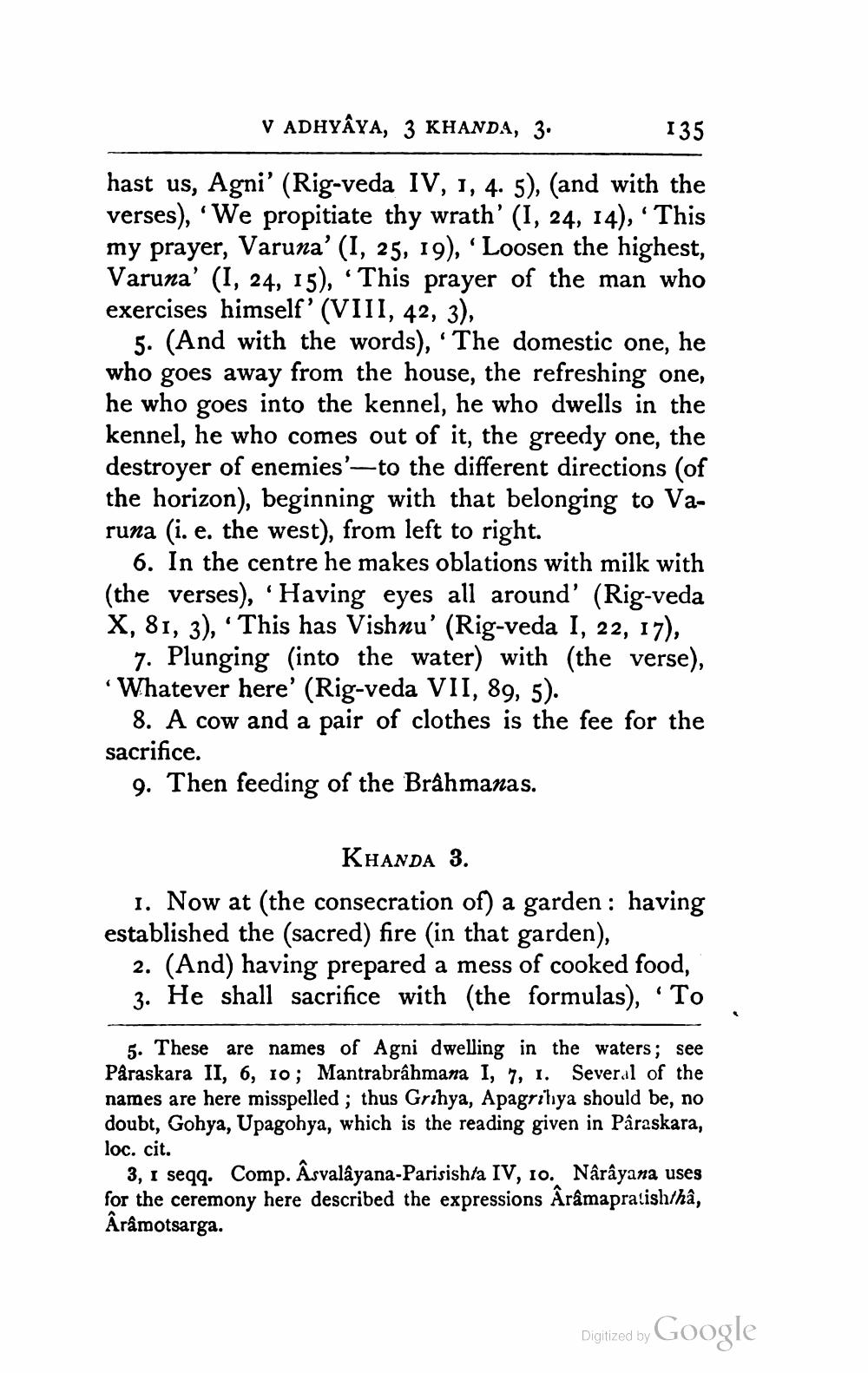________________
V ADHYAYA, 3 KHANDA, 3.
135
hast us, Agni' (Rig-veda IV, 1, 4. 5), (and with the verses), 'We propitiate thy wrath' (I, 24, 14), 'This my prayer, Varuna' (I, 25, 19), 'Loosen the highest, Varuna' (I, 24, 15), “This prayer of the man who exercises himself' (VIII, 42, 3),
5. (And with the words), 'The domestic one, he who goes away from the house, the refreshing one, he who goes into the kennel, he who dwells in the kennel, he who comes out of it, the greedy one, the destroyer of enemies'-to the different directions (of the horizon), beginning with that belonging to Varuna (i. e. the west), from left to right.
6. In the centre he makes oblations with milk with (the verses), 'Having eyes all around' (Rig-veda X, 81, 3), “This has Vishnu' (Rig-veda I, 22, 17),
7. Plunging into the water) with (the verse), "Whatever here' (Rig-veda VII, 89, 5).
8. A cow and a pair of clothes is the fee for the sacrifice.
9. Then feeding of the Brahmanas.
KHANDA 3. 1. Now at the consecration of) a garden: having established the (sacred) fire in that garden),
2. (And) having prepared a mess of cooked food, 3. He shall sacrifice with (the formulas), 'To
5. These are names of Agni dwelling in the waters; see Påraskara II, 6, 10; Mantrabrahmana I, 7, 1. Several of the names are here misspelled; thus Grihya, Apagrihya should be, no doubt, Gohya, Upagohya, which is the reading given in Pâraskara, loc. cit.
3, i seqq. Comp. Âsvalâyana-Parisishta IV, 10. Nârâyana uses for the ceremony here described the expressions Arâmapratishthâ, ârâmotsarga.
Digitized by Google




